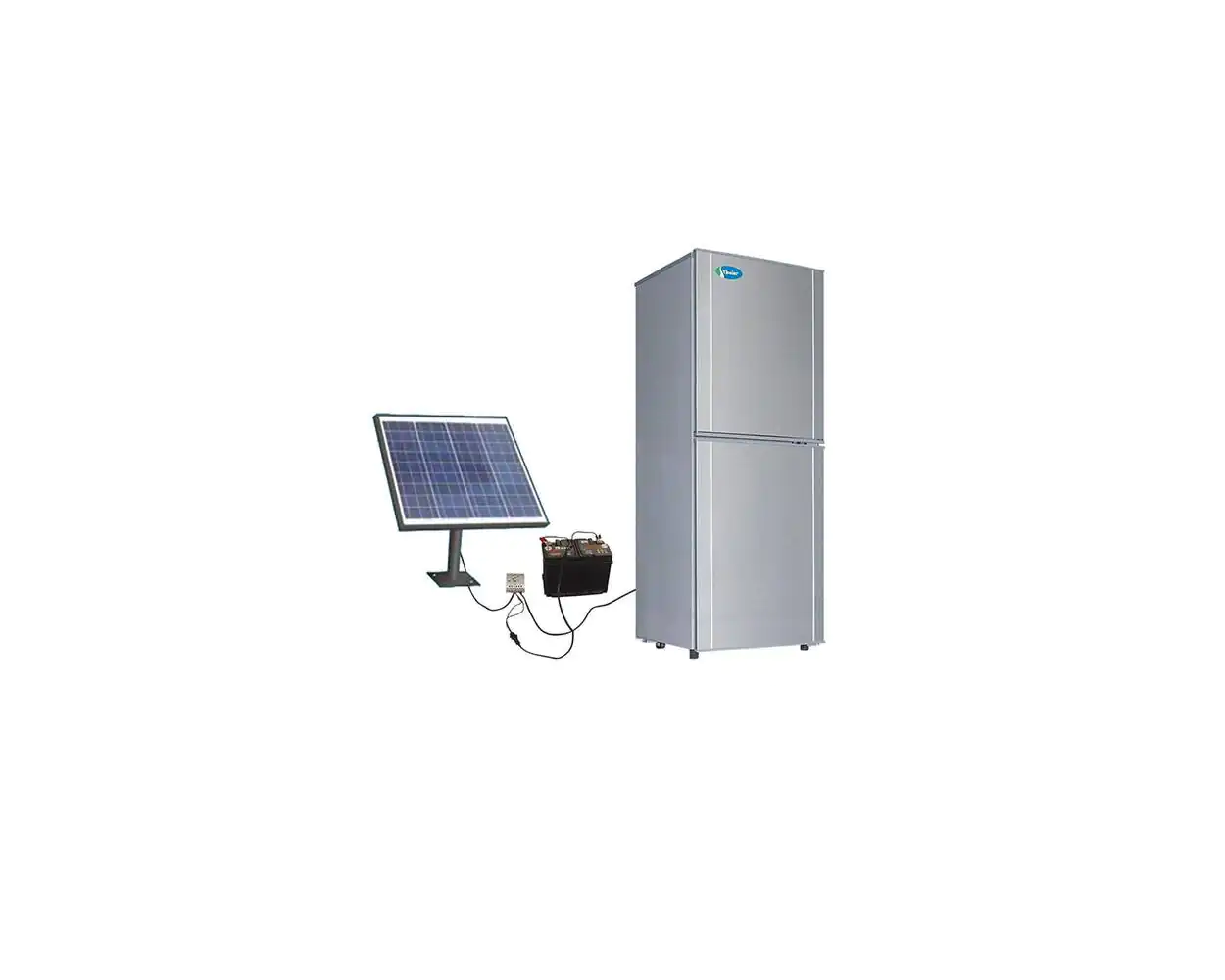The solar refrigerator is the future of sustainable cooling.
The solar refrigerator is the future of sustainable cooling.
Blog Article
Opening the Prospective: Exactly How Solar Fridge Can Change Your Power Intake
The development of solar fridges provides an engaging opportunity to improve our method to power consumption. By successfully utilizing sustainable solar energy, these systems guarantee not just to decrease dependancy on conventional power resources but likewise to enhance food preservation and protection, particularly in underserved areas.
Exactly How Solar Refrigerators Work
Solar refrigerators run by harnessing solar power to power their cooling systems, efficiently making use of renewable energies to maintain low temperatures. These systems generally contain photovoltaic or pv (PV) panels that convert sunshine right into electrical energy. This electrical power is then used to run the compressor, fan, and other components vital for refrigeration.
The primary system in a solar refrigerator is the vapor-compression cycle, similar to conventional fridges (solar refrigerator). The compressor presses refrigerant gas, raising its temperature level and stress. This gas then takes a trip through a condenser, where it launches warm and condenses right into a fluid state. The liquid cooling agent moves into a development valve, where it rapidly increases, cooling off prior to entering the evaporator. In the evaporator, the refrigerant soaks up warm from the interior of the fridge, thus lowering its temperature level.
Solar fridges might additionally incorporate battery storage space systems, allowing them to run during non-sunny hours or in gloomy problems. This ensures a continuous cooling impact, making them ideal for various applications, especially in remote areas lacking accessibility to reputable electrical energy. By incorporating solar modern technology, these refrigerators add to power effectiveness and sustainability in food storage and conservation.
Key Advantages of Solar Refrigeration
The assimilation of solar modern technology into refrigeration systems supplies various benefits that expand beyond mere energy savings. One of the most substantial benefits is the reduction of carbon impact. By using eco-friendly solar power, these systems reduce reliance on nonrenewable fuel sources, adding to a more sustainable environment. This shift is especially important in areas where electrical power supply is unreliable or non-existent, enabling communities to maintain food preservation and safety.

Additionally, the use of solar power can bring about energy freedom, enabling customers to create their very own power and decrease susceptability to fluctuating energy costs. In general, the adoption of solar refrigeration provides a diverse service that not just addresses energy intake but also advertises environmental sustainability and improves food conservation capacities in underserved areas.
Power Savings and Efficiency
With the climbing prices of power and raising awareness of environmental issues, power financial savings and performance have come to be critical factors to consider in refrigeration modern technology (solar refrigerator). Solar refrigerators take advantage of renewable resource resources, dramatically minimizing reliance on traditional electricity grids. By taking advantage of solar power, these systems reduce energy intake, making them a financially sensible choice for both residential and commercial applications
The design of solar refrigerators incorporates innovative insulation products and energy-efficient compressors, which ensure optimum efficiency while using minimal power. Several solar refrigerator designs likewise include programmable settings and wise modern technology that permit customers to keep an eye on and take care of energy usage effectively. This intelligent style leads to minimized electricity bills and reduced operational expenses gradually.
Additionally, solar refrigerators are equipped with batteries that store excess energy generated throughout sunny days, making it possible for continuous operation even throughout periods of low sunlight. This capability improves their performance, his comment is here ensuring that food and subject to spoiling items are regularly maintained secure temperatures.
Environmental Effect and Sustainability
Taking advantage of renewable resource not just boosts energy savings however additionally dramatically adds to ecological sustainability. solar refrigerator. Solar refrigerators run on tidy, sustainable power sources, reducing reliance on nonrenewable fuel sources that add to greenhouse gas discharges. This change in energy usage minimizes environment adjustment effects and promotes a healthier planet

Additionally, wikipedia reference solar refrigerators are specifically useful in remote locations where electrical power accessibility is restricted or non-existent. By giving a practical refrigeration option without the need for substantial framework, they promote lasting growth in underserved communities. This availability not only enhances food safety yet also minimizes food perishing, thereby reducing waste.
Picking the Right Solar Fridge
Selecting the suitable solar fridge calls for careful consideration of different aspects to make certain optimal performance and effectiveness. First, examine the power requires based upon your consumption patterns. Determine the overall power level needed to maintain your products cool down, which helps in picking a device with an ideal photovoltaic panel dimension to fulfill these needs.

An additional critical element is the kind of solar refrigerator-- compressor or absorption. Compressor designs are typically extra efficient and better suited for settings with changing temperature levels, while absorption refrigerators may be more effective for off-grid applications because of their simplicity.
Finally, make certain the unit has trustworthy solar components, including panels, batteries, and a fee controller, to assure long-lasting capability. By carefully thinking about these variables, you can select a solar refrigerator that lines up with your power objectives and adds to sustainable living.
Conclusion
In summary, solar refrigerators represent a significant advancement in power intake, supplying a lasting option to conventional refrigeration methods. By utilizing solar energy, these systems not just minimize reliance on fossil fuels yet additionally improve food safety and security and minimize image source ecological influence.
Report this page